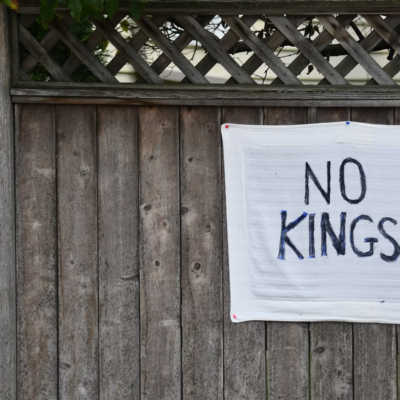In 1984, the aftermath of the Vietnam War left America divided and searching for unity. The war and the effects of its end became a catalyst for artistic expression, of opposing views. Forty years later marked a turning point in American history: The 2024 election created division in the country. However, many Americans still question what it means to be an American: This question becomes complicated in times of political polarization. When analyzing the music of the time, different views emerge.
Two songs were released in 1984 that represented the polarization of the American experience. That year, an American country singer, Lee Greenwood released his patriotic anthem, God Bless the U.S.A. The song championed the “American experience:” Greenwood sings lyrics such as: “Cause the flag still stands for freedom/And they can’t take that away,” and, “I’m proud to be an American, Where at least I know I’m free.” The song was used at the 1984 Republican National Convention, in a film about presidential nominee Ronald Regan. The song became a national anthem for the Republican party, which pushed the idea that it represented the ideal American beliefs and culture.
In that same year, rock star Bruce Springsteen released his take on American culture, Born in The USA. It details the return of a Vietnam War Veteran, who finds that the American government has left Veterans with little support and resources. “I’m ten years burnin’ down the road, Nowhere to run, ain’t got nowhere to go” Springsteen sang and called out the lack of systems in place for housing for veterans. Three years before, the singer staged a benefit concert for Vietnam veterans, where he spoke out against the mistreatment of vets by the U.S. government.
While God Bless the U.S.A. praised the experience provided by the government, Born in The U.S.A questioned it. Contrasting each other, both answered the question What does it mean to be an American? Looking through a modern lens, the presidential election between Donald J. Trump and Kamala Harris held an abundance of weight around the future of America, something represented in their choice of campaign songs.
Mirroring Reagan in 1984, Republican nominee and president-elect Donald Trump chose God Bless the U.S.A. to represent his campaign. While Trump began his rallies with the song, some of them were accompanied by performances from the singer Lee Greenwood. “Basically, he chose that song to represent his campaign and what he felt was best for the country. I was proud to be part of it,” Greenwood said (per The Wall Street Journal). In addition to using the song at rallies, Trump and the singer began selling “God Bless the USA” bibles for $55. Trump’s choices sent the message that America was “blessed” under God and therefore a superior country.
Using Freedom by Beyonce as her campaign song, Democratic Presidential nominee Kamala Harris took a different stance. The self-empowerment anthem talks about breaking out of a dire situation and taking power back: “I break chains all by myself, Won’t let my freedom rot in hell.” With bodily autonomy among one of the many issues being debated in the election, many voters resonated with the choice: Many saw it as a reminder that freedom is at stake. “The use of a song with that type of title, or a hook with lyrics referring to liberty or freedom, often tries to portray the candidate as supporting voters’ personal autonomy and security from government overreach” says Eric T. Casper for AP news. Contrasting her opponent’s choice, Harris sent a message that America needs everyone to be free.
America is a country built on political polarization, dating back to the colonial era in which the country was divided on whether to secede from England. Dissimilar views are at the forefront: the idea that America is superior to other countries and its systems benefit everyone, and the view that America has flaws in its systems and doesn’t provide freedom to everyone. Citizens feel that because of the division, they must take a side: pressure that is only enhanced by the music promoted by each group.
In times of polarization, we must remember that criticizing issues in the government does not make someone less patriotic, because the only way to grow and progress is to correct the injustices in our systems. America is not the land of the free until it provides freedom to everyone.










